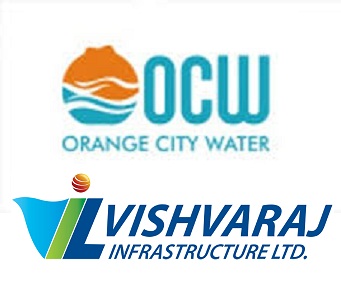 Nagpur’s smart water management is an example for other cities across India. The first city to take the lead is Nagpur, Maharashtra. Now included in the smart cities list, it has inhabitants of over 2.5 million people and is the first city of its size in the nation to outsource water supply to a private operator under the PPP model for 25 years. Under the scheme the main objective was to provide 24-hour 100% safe drinking water to 100% population including slum dwellers within five years. The second objective was to reduce non-revenue water (50% water supplied to towns which is untraceable, not recorded and not paid for) to below 25% in 10 years. The project included management of the entire water cycle from production, treatment, transport, storage and delivery to the customer’s tap. It involved replacement of over three lakh house service connections, rehabilitation of treatment facilities, service reservoirs and pipelines.
Nagpur’s smart water management is an example for other cities across India. The first city to take the lead is Nagpur, Maharashtra. Now included in the smart cities list, it has inhabitants of over 2.5 million people and is the first city of its size in the nation to outsource water supply to a private operator under the PPP model for 25 years. Under the scheme the main objective was to provide 24-hour 100% safe drinking water to 100% population including slum dwellers within five years. The second objective was to reduce non-revenue water (50% water supplied to towns which is untraceable, not recorded and not paid for) to below 25% in 10 years. The project included management of the entire water cycle from production, treatment, transport, storage and delivery to the customer’s tap. It involved replacement of over three lakh house service connections, rehabilitation of treatment facilities, service reservoirs and pipelines.
“Now every household has a tap and a meter irrespective of whether it is a slum, a flat or a bungalow. There is accountability for every drop of water supplied the first time,” says Arun Lakhani, chairman and managing director, Vishvaraj Infrastructure Ltd (VIL India), which executed the Nagpur Orange City Water Project (OCW).
The aim of the project Nagpur 24×7 was to address problems of water that was being wasted and not getting billed. The city was supplying 575 million litres per day (mld) of treated water of which only 175 mld was getting billed and paid for. Most meters were either non-existent or non functional. Also, the city was receiving water supply for eight to 10 hours or on alternate days. The tanker mafia added to the problem. On the sewage side, the city was generating 550 mld of sewage and had the capacity to treat only 100 mld.
The remaining untreated sewage was polluting water bodies that supplied water to the city. For this project, the private company invested 30% of the estimated project cost, 70% grants came from the JNNURM scheme, shared by both the state and the Central government. The project was initiated by the Nagpur Municipal Corporation. This project has showcased as the model case study for other cities at the launch of Atal Mission for Rejuvenation and Urban Transformation (AMRUT) and Smart City initiative. The company also undertook a waste water reuse project for Nagpur city under which National Thermal Power Corporation (NTPC) will be reusing 200 mld of treated water from the STP for its Mauda plant. By doing so, the city will get an additional 200 million litres per day of water, which is enough for 200 lakh people.